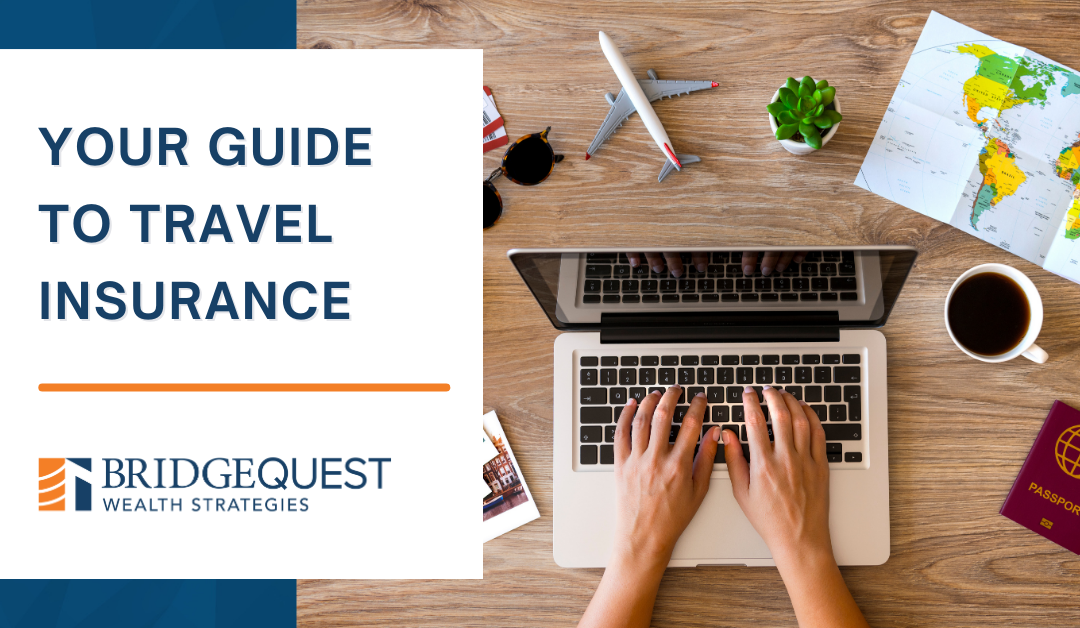Vacations are an investment. A lot of planning and money goes into having the best trip possible—but should you buy travel insurance to protect yourself in the event of unforeseen changes and emergencies?
The guide below explains the ins and outs of travel insurance, where to purchase it, when you should purchase it, and situations when you can probably skip it. Plus, you may already have complementary travel insurance without knowing it!
Understanding travel insurance
Like any other kind of insurance, travel insurance protects you against any money or health-related mishaps before, during, and after your trip.
However, travel insurance is intended to cover events outside of your control. For example, travel insurance won’t cover the cost of your canceled flights if you wait to purchase insurance until after a hurricane is predicted to land at your destination. But if you had purchased the insurance before knowing about the hurricane and canceled flights, the flight costs could be reimbursed.
The plan you purchase will outline the types of coverage it offers. Typically, travel insurance protects you against the smallest inconveniences like luggage loss, or larger occurrences, such as a health emergency abroad. It’s crucial to pick a plan that is tailored to your trip destination, length, party size, and medical needs.
The best policies
It’s important to read your policy thoroughly to ensure you’re receiving the best perks possible. And don’t be afraid to shop around at different agencies. Here are a few commonly used coverages to look for in a travel insurance policy.
- Personal liability
- Emergency medical
- Cancellation, curtailment, and missed departure
- Personal belongings/assets
- Legal assistance abroad
- Rental car damage
When to purchase travel insurance
If you’ve never purchased travel insurance before, it can feel like a waste of money because it’s not something you’ve budgeted into your trip before. Budget early for it, and look at policy rates that meet your criteria. It’s best to consider travel insurance in the following situations. Keep in mind that it’s common practice to purchase insurance at least fifteen days ahead of your trip—if you wait until the last moment, the insurer may be wary of your intentions.
- International trips
- Trips longer than two weeks
- A trip that involves extreme sports or potentially dangerous excursions
- Expensive trips
- You or a travel buddy has a preexisting condition that can be unpredictably debilitating
- You or a travel buddy is in the military and may be deployed
- Your job may ask you to come in for an emergency during your trip
Where to buy travel insurance
You can purchase your policy from the travel agency you booked your trip through or directly from another provider. If you choose to purchase insurance directly from the insurers, compare different rates with these top-rated comparison sites. (AAA is a direct provider, these are just the sites that can compare rates. I didn’t want to call out a specific insurer incase it’s a competitor of our client)
You might already have complementary coverage
Check your credit card perks and car insurance policy for any travel insurance discounts or free coverage. Cards like Chase Sapphire Preferred sometimes provide complementary trip protection if you use your card to book your flights and hotels, which are oftentimes nonrefundable. However, these reimbursements may not cover health-related travel incidents, so be sure to supplement with any other necessary coverage.
When to skip travel insurance
Not every trip will need travel insurance. It can be costly to add insurance to your trip, so here are the times you should consider foregoing it.
- An inexpensive trip
- Short domestic road trips
- A trip with reimbursable flights or hotels
- Business travel (your company likely covers you already)
Travel safely, and remember to plan and budget as early as possible!
This article was prepared by ReminderMedia.

